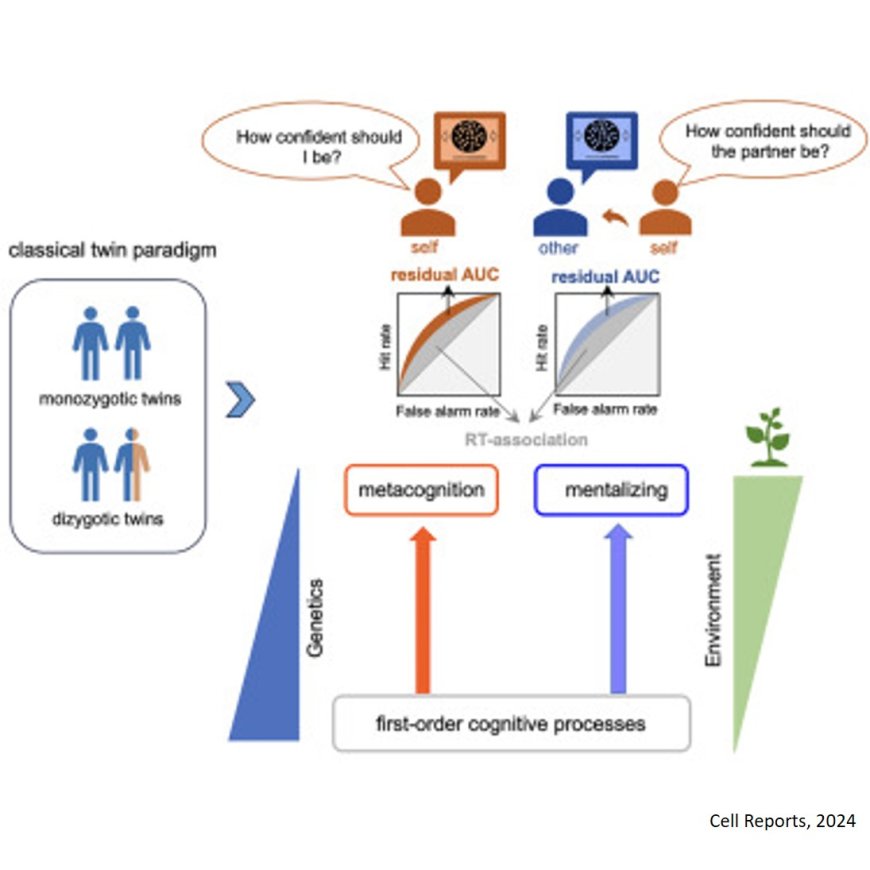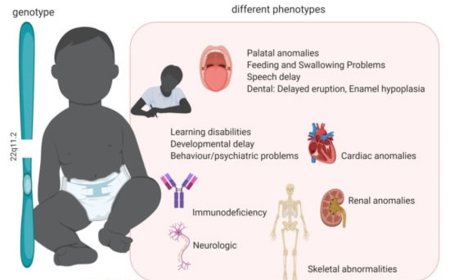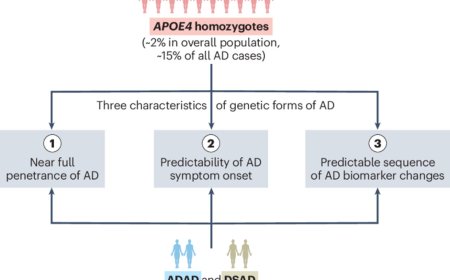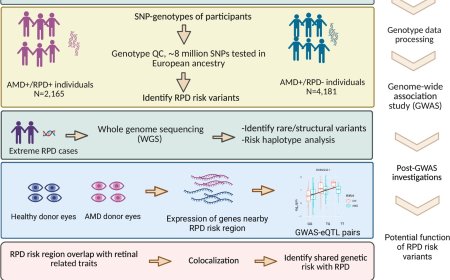More influence of environment than genetics in metacognitive abilities

Twin studies have proven invaluable for teasing out the effects of both genetics and the environment on human biology. In a study published in Cell Reports, researchers studied pairs of twins to look at how the interplay of genetics and environment affect cognitive processing—the way that people think. They found that some cognitive abilities appear to be regulated more by environmental factors than by genetics.
“Past research has suggested that general intelligence—often referred to as intelligence quotient or IQ—has a heritability ranging from 50% to 80%,” says senior and corresponding author. “Our study may be the first to demonstrate that a different kind of cognitive ability, known as metacognition and mentalizing, might be much more influenced by environment.”
Cognitive functions such as perception, attention, memory, language, and planning are considered to be the basis for general intelligence. These functions regulate the way that people organize and process new information. By contrast, metacognition looks at how well people understand and control their cognitive processes.
Metacognition is important for developing learning strategies and is believed to be a predictor of an individual’s successes in school and social achievements. Mentalizing describes the process of recognizing and understanding mental states like emotions and attitudes, both in ourselves and in other people.
For this research, the investigators recruited 57 pairs of adult monozygotic (identical) twins and 48 pairs of dizygotic (fraternal) twins from the Beijing Twin Study (BeTwiSt). This is an ongoing, long-term study established in 2006 that includes extensive data like brain images and psychological surveys, as well as genetic information, on pairs of twins.
The twins were asked to perform tasks related to metacognition. These tasks consisted of watching a cluster of moving dots on a screen and making a perceptual judgement on the net direction of the dots. They were also asked to rate their confidence about their decisions. To measure mentalizing, the participants were asked to evaluate a partner’s confidence in their decision-making abilities.
The investigators found that pairs of twins who had parents with higher levels of education and higher family incomes have similar results to each other, regardless of whether they were identical or fraternal. These observations suggested that familial environment was more likely to influence metacognitive abilities than genetics.
“Our findings were outside our expectations,” the author says. “Decades of extensive research utilizing the classical twin paradigm have consistently demonstrated the heritability of nearly all cognitive abilities so far investigated. Our findings emphasize that these shared family environmental factors, such as parental nurturing and the transmission of cultural values, likely play a significant role in shaping the mental state representations in metacognition and mentalizing.”
The researchers acknowledge that there are limitations to this research and that many more studies are needed. They plan to continue their research in this area, including using population studies to further investigate what kind of specific parental nurturing factors and sociocultural values affect individuals’ metacognitive and mentalizing abilities.













